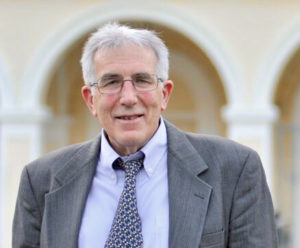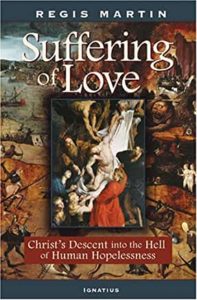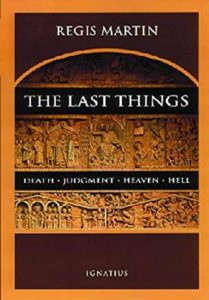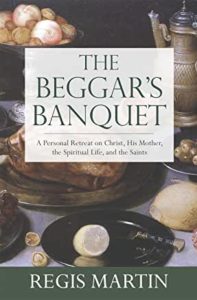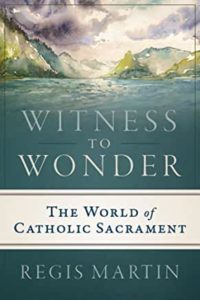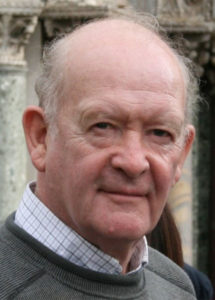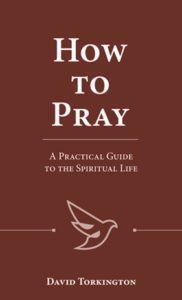Podcast: Play in new window | Download (Duration: 33:16 — 23.0MB) | Embed
Subscribe: Apple Podcasts | Spotify | Amazon Music | Android | Pandora | iHeartRadio | JioSaavn | Podchaser | Gaana | Podcast Index | Email | TuneIn | Deezer | Anghami | RSS | More
Episode 9 – Jesus’ Heart – A Biblical Way of Praying the Mass with Fr. Timothy Gallagher O.M.V.

We continue our conversation with Fr. Gallagher discussing the encouragements given by Venerable Bruno Lanteri in regards to a biblical way of praying the Mass. In this episode, Fr. Gallagher reflects on the Consecration.
Take a moment and pray:
“This is my body. . . . This is my blood of the covenant, which will be shed on behalf of many for the forgiveness of sins” (Matt. 26:26–28): a Heart that offers everything, even his Body, even his Blood — all that he is — that our sins may be forgiven and the door to eternal life opened.
“I am the good shepherd. A good shepherd lays down his life for the sheep” (John 10:11): again, a Heart that offers itself without limit, laying down his life for his sheep — for us.
“He loved his own in the world and he loved them to the end” (John 13:1): a Heart that loves without measure, to the end — that is, to the last moment of his life and to the utmost bounds of love.
“He emptied himself, taking the form of a slave” (Phil. 2:7): a Heart that gives its whole being, totally available to the Father in our service and for our liberation.
“Father, if it is possible, let this cup pass from me; yet, not as I will, but as you will” (Matt. 26:39): a Heart in agony, a human Heart that struggles to say yes to the Father and that offers itself without reserve.
Gallagher, Timothy M.. A Biblical Way of Praying the Mass: The Eucharistic Wisdom of Venerable Bruno Lanteri (p. 63). EWTN Publishing Inc.. Kindle Edition.
On the day before he was to suffer (Holy Thursday evening, in the upper room),
he took bread in his holy and venerable hands (in your mind’s eye, contemplate Jesus as he does this and the following actions),
and with eyes raised to heaven, to you, O God, his almighty Father, giving you thanks, he said the blessing, broke the bread, and gave it to his disciples, saying:
Take this, all of you, and eat of it (“take,” “eat”: the Law of the Gift),
for this is my Body, which will be given up for you (“my Body,” “given up for you”).
In a similar way, when supper was ended, he took this precious chalice in his holy and venerable hands (again, contemplate Jesus as he does this and the following actions),
and once more giving you thanks, he said the blessing and gave the chalice to his disciples, saying: Take this, all of you, and drink from it,
for this is the chalice of my Blood, the Blood of the new and eternal covenant, which will be poured out for you and for many (“my Blood,” “poured out for you”: the Law of the Gift)
for the forgiveness of sins.
Do this in memory of me (in the Consecration of the Mass, the Church fulfills this blessed command; in it we find the model and the grace to live by it).
Gallagher, Timothy M.. A Biblical Way of Praying the Mass: The Eucharistic Wisdom of Venerable Bruno Lanteri (pp. 67-68). EWTN Publishing Inc.. Kindle Edition.
For more episodes in the A Biblical Way of Praying the Mass with Fr. Timothy Gallagher podcast series, visit here
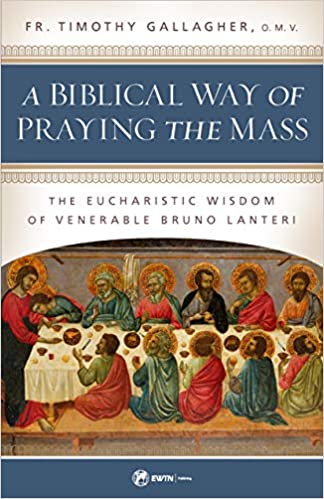 You can find A Biblical Way of Praying the Mass here
You can find A Biblical Way of Praying the Mass here
Father Timothy M. Gallagher, O.M.V., was ordained in 1979 as a member of the Oblates of the Virgin Mary, a religious community dedicated to retreats and spiritual formation according to the Spiritual Exercises of St. Ignatius. Fr. Gallagher is featured on the EWTN series “Living the Discerning Life: The Spiritual Teachings of St. Ignatius of Loyola.” For more information on how to obtain copies of Fr. Gallaghers’s various books and audio, which are available for purchase, please visit his website: frtimothygallagher.org


